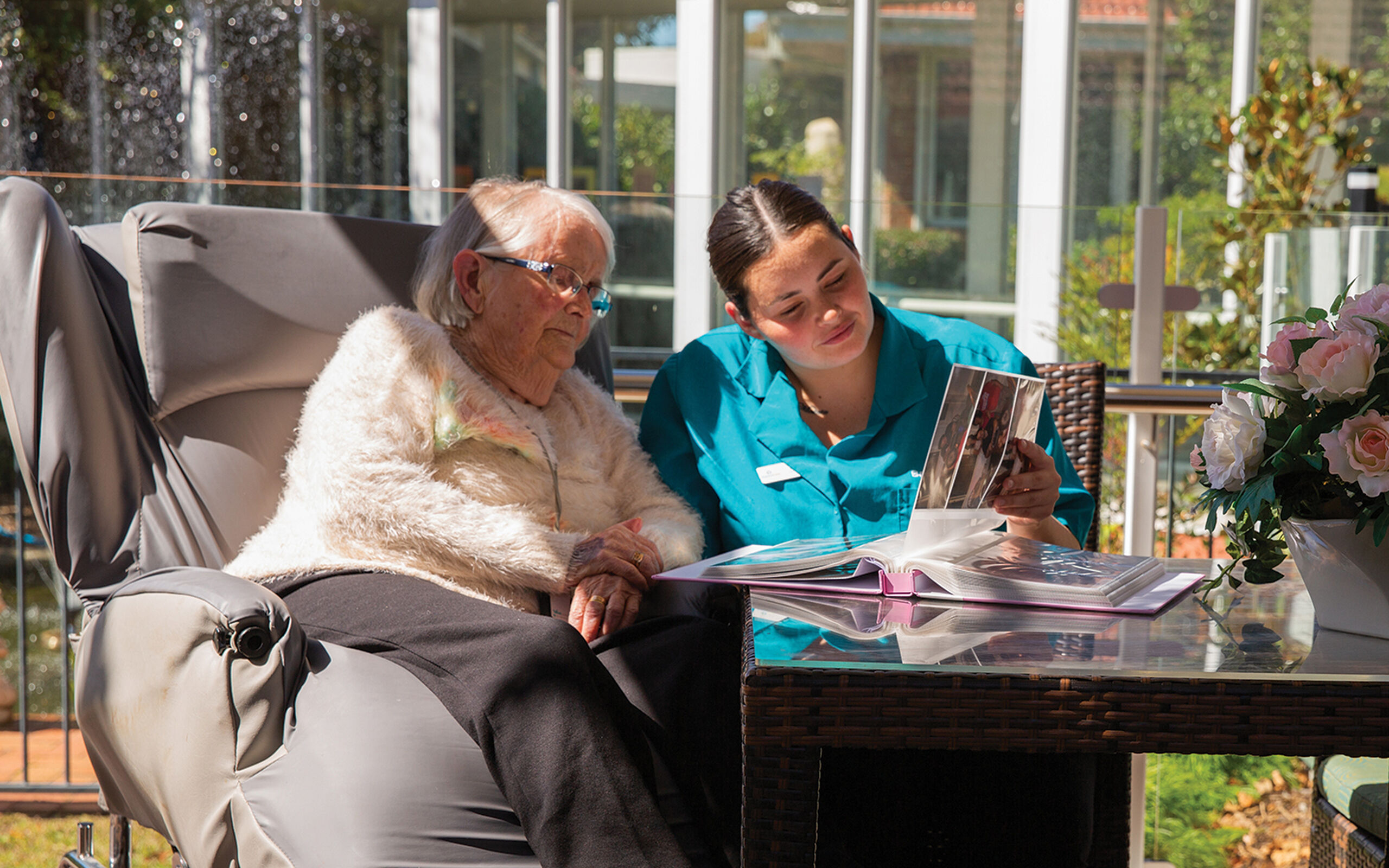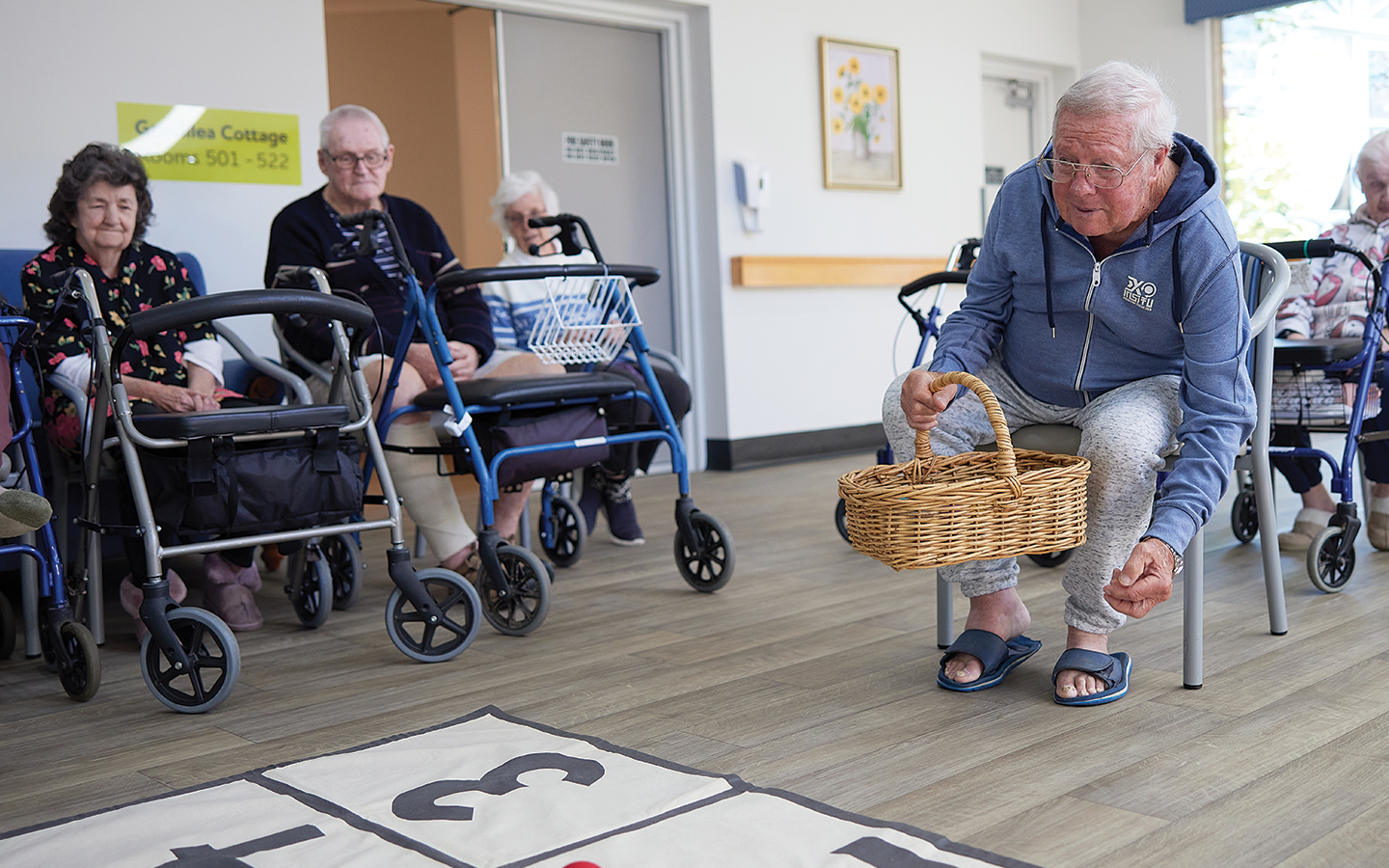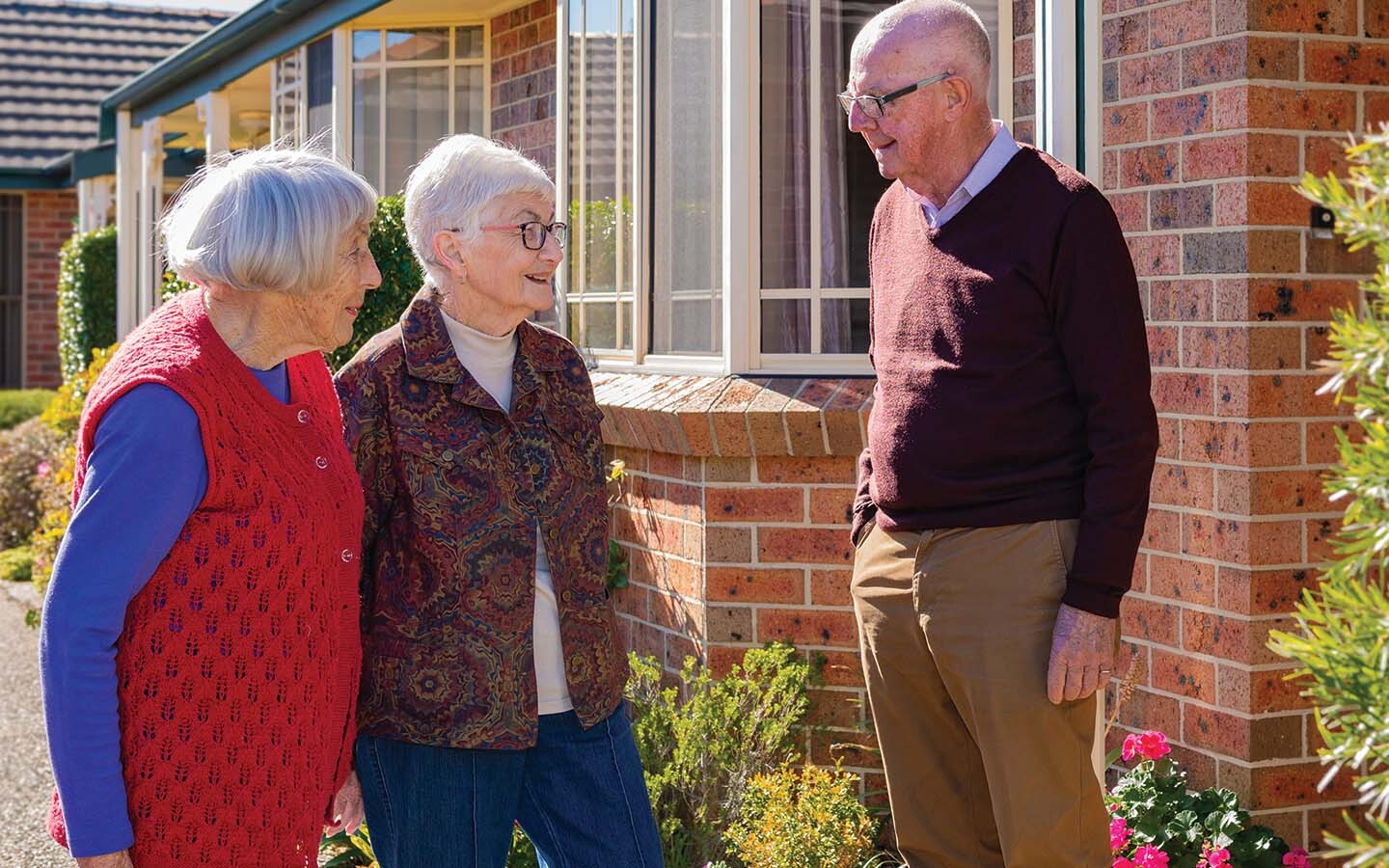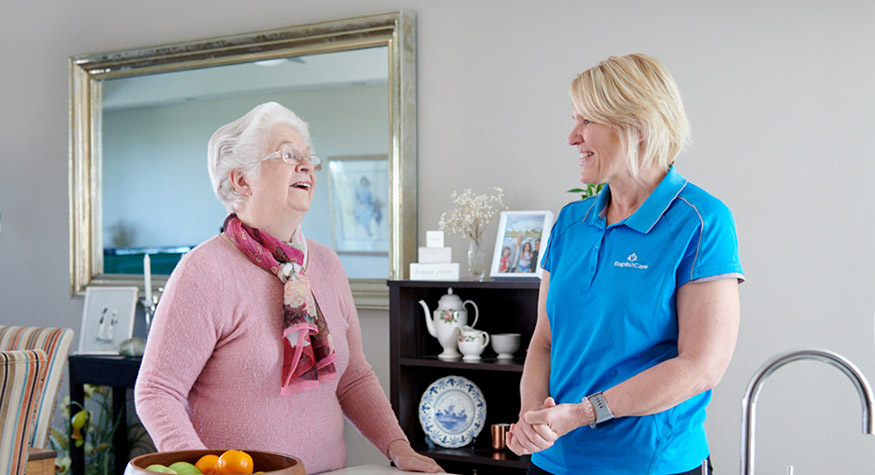What is the difference between residential aged care and retirement living?
Retirement living communities and residential aged care homes are distinctly different from one another and accommodate people at entirely separate stages of life.
Scroll to Explore

15 November 2022
Stories
| Retirement Living, Aged Care Homes
What is the difference between residential aged care and retirement living?
With so many lifestyle choices now available to senior Australians, understanding the options and terminology can sometimes be confusing.
Here we break down the definitions – and distinct points of difference – between retirement living and residential aged care to help you determine which will best suit your needs.
Key points:
- Residential aged care homes typically cater to residents who need ongoing assistance with self-care and basic everyday tasks.
- Retirement living in Australia commonly describes a community of people over the age of 55, living independently in a complex of homes and facilities – a little bit like a resort.
- Retirement living communities and residential care homes are sometimes located on the same site, to offer a smooth transition for retirees if their needs evolve over time.
- Home Care services can also support people to stay in the comfort of their own home for longer, whether it be within a retirement living community, or in their family home.
What is residential aged care?
Residential aged care provides residents with access to round-the-clock care in an environment which has been designed to feel like home. Residential aged care can also be known as:
- A nursing home
- An aged care home or care home
- Aged care facility
Residential aged care accommodates seniors with a diverse range of care requirements, from those who are still living fairly independently, to people with complex care needs, such as those living with dementia, right through to end-of-life palliative care.
Usually, residents and their families will make the decision to move into residential aged care when their mobility or cognitive health has reduced to the point where they can no longer live safely on their own.
Residential aged care allows them to be supported 24/7 by highly qualified and well-trained staff, who will work with residents and their families to provide consistent, quality care, tailored to each individual’s preferences and needs.
The care home staff also ensure residents are still able to continue doing activities and hobbies that they enjoy, creating inclusive, tailored leisure activity programs to keep the resident community active and having fun.

What is retirement living?
A retirement living community refers to a village of homes and facilities designed for people over the age of 55, typically those who are living independently and do not need ongoing, full-time care. Retirement living can also be referred to as:
- Independent living
- A retirement village
- A retirement community
- Over-55s community
Retirement village residents have often downsized from a larger property, wanting to ditch the hassle of home and garden maintenance as they get older and feel part of a close-knit, sociable community. They can enjoy on-site facilities like swimming pools, bowling greens, libraries, and hair salons, reducing the need for frequent travel, and there is often a village shuttle bus serving the local shops if required.
Unlike residential aged care homes, which employ multiple care workers to provide tailored, 24/7 care, a retirement community will typically have a much smaller team of staff to manage the everyday running of the village.

Can I receive care at home in a retirement village?
Yes. Many village residents choose to receive home care to varying degrees, enabling them to stay in the comfort of their own home for longer.
Retirement village operators may also offer their residents home care services, or residents might choose a different provider. Either way, home care is delivered at additional cost, but is eligible for government funding.
Home care funding falls into one of the following three categories:
- Commonwealth Home Support Programme (CHSP)
For those requiring general help around the home, garden maintenance, help with shopping, and other everyday activities.
- Home Care Package (HCP)
For those requiring more complex care, with four varying levels of support available. This is often best suited for people who do not require the 24/7 support of residential aged care but who need a higher degree of care than that offered by the CHSP.
- Privately funded home care
The wait times for a Home Care Package (HCP) can be lengthy, and you might prefer to pay privately for your home care in the interim.
Not-for-profit organisations like BaptistCare often support retirement village residents to do this in two ways:
1. At BaptistCare, our village residents have the option to draw down from their Entry Payment to pay for services whilst they await funding, with the option to pay on a fee-for-service basis.
2. We offer our village residents priority access to BaptistCare at Home services, reducing their potential wait time.

Why are retirement villages and residential aged care homes sometimes located together?
When planning your retirement, it makes good sense to consider your needs both now and into the future. Many service providers have chosen to incorporate residential aged care within the village estate so that residents requiring additional care can remain in the community.
If you are a couple for example and your partner requires residential aged care, you can stay close to one another amongst familiar surroundings.
Co-located facilities will also usually mean you can stay consistent with the same provider, and this can be cost-effective. For example:
- At BaptistCare, we offer prospective care home residents a discount on their accommodation bond if they are moving over from one of our retirement villages.
- We also guarantee to refund your retirement village Entry Payment within just one week, so there is no delay in getting you the care you need.
- If your partner requires residential aged care whilst you continue to live in your retirement village home, your Entry Payment will not be counted as part of your assets – something that can affect how much you pay for residential aged care.
Are you thinking about residential aged care for yourself or a loved one? Or perhaps you’re keen to take a tour of one of our beautiful retirement villages.
Some of our most popular communities are listed below, all of which house both a retirement village as well as a residential aged care home if ever you need it.
Click the link below to learn more about BaptistCare's
Residential Aged Care | Retirement Living | Financials Explained | Adaptive Living | Find a village | Find a care home